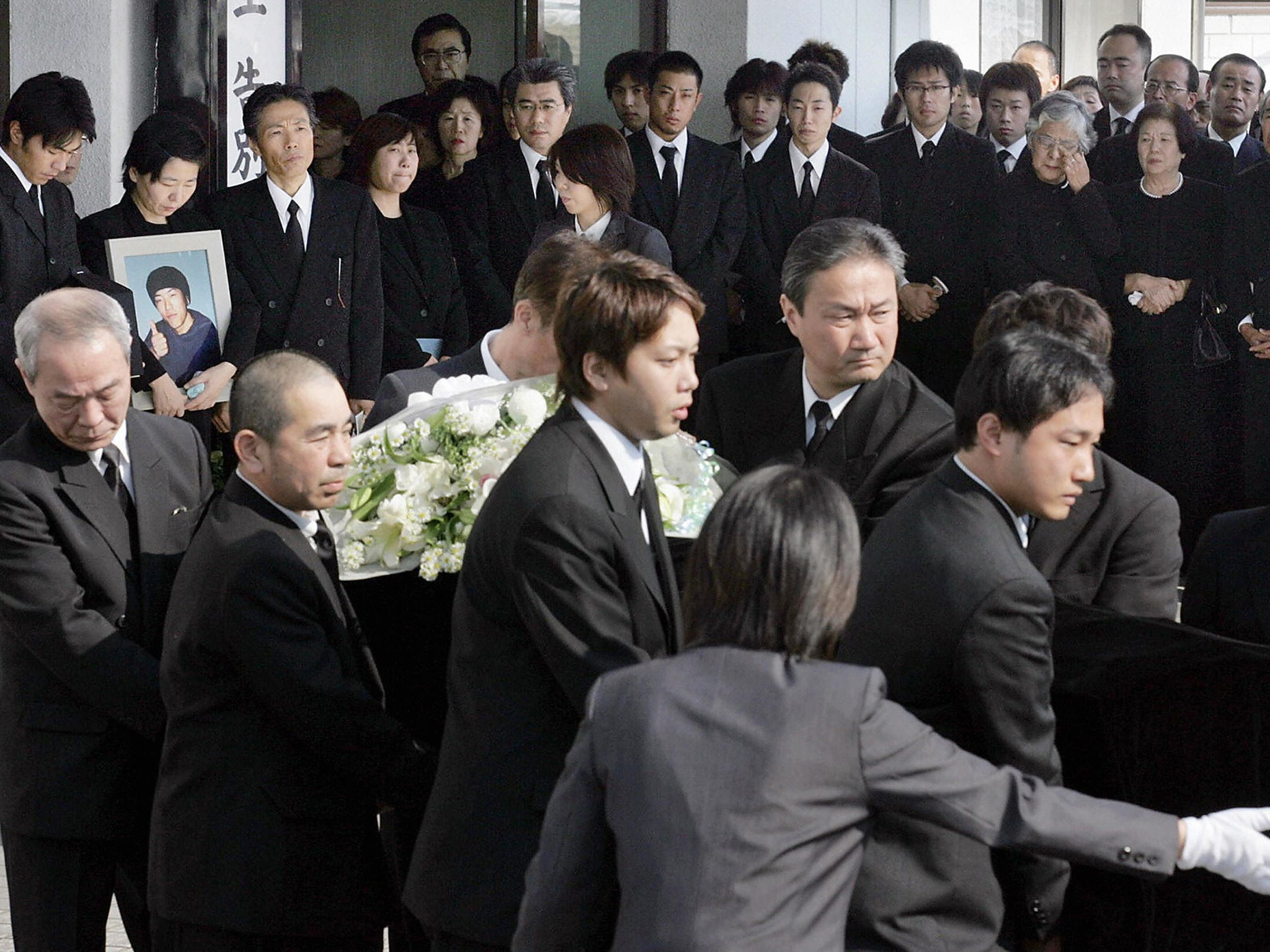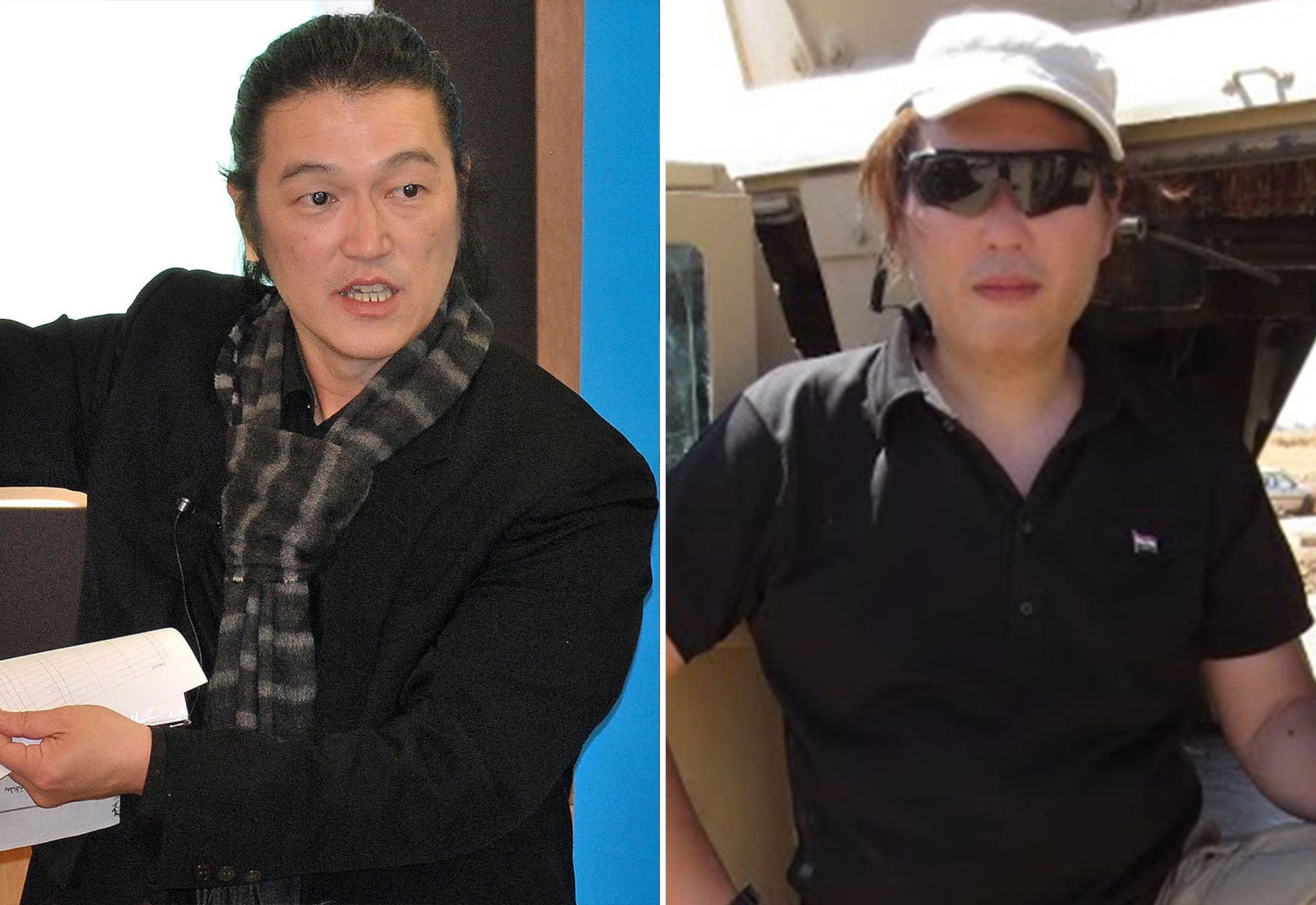Isis hostage: Murder of Haruna Yukawa has grim echoes of a killing in Iraq 11 years ago
Diplomatic Channels: The mood among the Japanese public was very much against what was seen as irresponsible trips to a vicious war zone

One day in October 11 years ago, one of our translators came into our hotel in Baghdad, the Hamra, breathlessly describing how a young Chinese backpacker was walking around the city centre enquiring about cheap youth hostels.
This was, to say the least, very surprising. Iraq at the time was a place of relentless savagery, with dead bodies piling up every day. Obvious foreigners were simply not seen strolling in the streets. To do so would have been to invite murder or kidnap.
We contacted the Chinese embassy, one of the very few foreign legations open at the time. They knew nothing about it. The tourist was not Chinese, but Japanese: a 25-year-old called Shosei Koda. He had ignored advice about the dangers of Iraq and jumped on a bus in Amman for Baghdad. He wanted to see what was going on with his own eyes, rather than depend on media reports.
Amazingly, he had survived the journey in Anbar, through Falluja and Ramadi, aflame at the time with the Sunni insurgency. Koda, who belonged to the United Church of Christ, had a cross tattooed on his arm; sectarian murders of Christians had begun in earnest then in Iraq.
Seven workers from the Hunting Club social club had been ambushed and killed on their way home that month. I had met them all at the club, a place of relative safety behind high walls for the city’s dwindling professional classes.
By the time Koda’s identity had been established, he was already a captive of Abu Musab al-Zarqawi, whose savagery was to lead to protests from even the al-Qaeda hierarchy.
Lethal attacks by his group were becoming increasingly prevalent. Just a few days earlier we had covered the murders of 49 army recruits who were taken off a bus in Baqouba and shot.
The ties that bind the aristocracy of jihad continue to this day. Abu Bakr al-Baghdadi, now the leader of Isis, was a lieutenant of Zarqawi and his deputy, Mubarak al-Rishawi, who were both later killed by the Americans. Sajida al-Rishawi, the female prisoner in Jordan who Isis wants released in return for the remaining Japanese hostage being held now, is the sister of Mubarak.
Baghdadi has left al-Qaeda, but reuniting Sajida with his dead comrade’s family would demonstrate the far reach of his growing power.
Koda, with grim inevitability, appeared on a video in an orange jumpsuit. His kidnappers wanted Tokyo to pull its troops out of Iraq within 48 hours. A small Japanese contingent had been carrying out reconstruction work in Muthanna, a province in the British-controlled south, with Australian and British troops providing security.

The current Japanese premier, Shinzo Abe, wants a change in the country’s law to enable his troops to provide its own force protection. It is part of a new robust foreign and defence policy he was announcing in the Middle East when the video of Kenji Goto and his fellow hostage Haruna Yukawa was displayed by Isis. There has been sadness and shock in Japan at Yukawa’s killing. But the reaction to his and Goto’s capture has not been universally sympathetic.
Questions are asked about the motivation, especially of Yukawa, for going to Syria. His father has apologised for the “inconvenience” his son has caused to the nation; Goto’s mother has also made a statement of contrition.
The reaction to Koda’s abduction was somewhat similar at the time. The mood among the Japanese public seemed to be very much against what was seen as irresponsible trips to a particularly vicious war zone.
A group of peace activists who had also been abducted in Iraq, but subsequently freed, were jeered at the airport when they returned home; some of them were forced to go into hiding for several months. The Japanese government rejected the ultimatum over Koda. There were no further demands. Eight days after being snatched, the former handyman was beheaded on camera. His body was found lying in the street wrapped in an American flag.
The Japanese stayed in Muthanna until 2009 when it was deemed the first province to be ready for control of the Iraqi government. I went to the handover ceremony; no members of the public were present, details had been kept secret to avoid an attack in the supposedly safest part of Iraq.
Most of premier Nouri al-Maliki’s speech went unheard because the sound system failed. The compere said hopefully: “The electricity was wavering because it was overcome with our great love for you.”
The alternative claim was that generators at a power station had been blow up. The Japanese had done some fine development work, with things like state-of-the art plasma screens in schools. Within a week, the buildings had been stripped bare by looters.
Four years later, horrific details emerged about a prison being run by the Iraqi government at Muthanna airfield. The mistreatment was described as being worse than those in Abu Ghraib.
Journalists, Human Rights Watch and US officials catalogued the sadistic beatings and rapes which had been inflicted. Some of the inmates from there who survived were to go on to become leaders of Isis, the captors of the latest Japanese hostages.
Join our commenting forum
Join thought-provoking conversations, follow other Independent readers and see their replies
0Comments